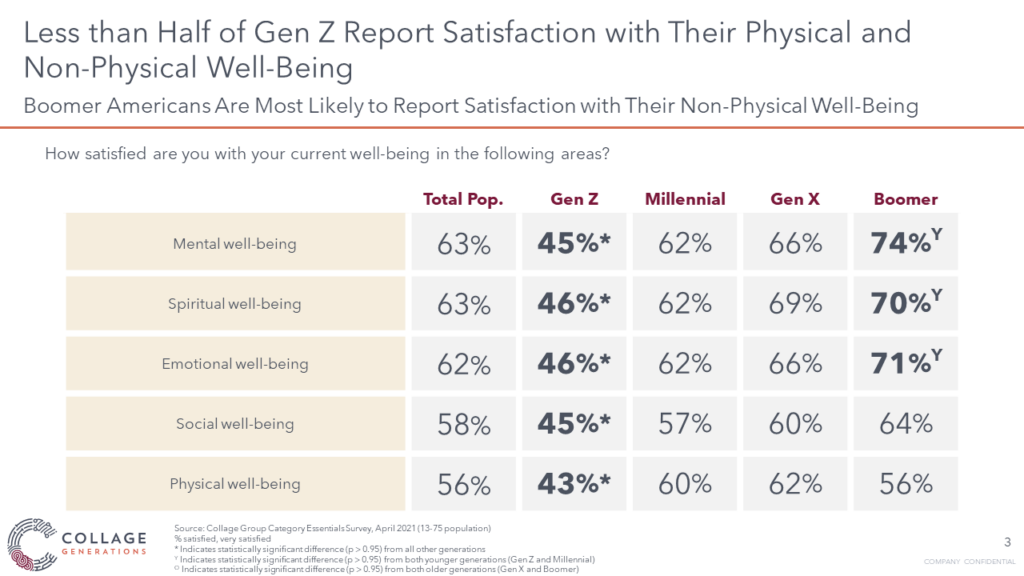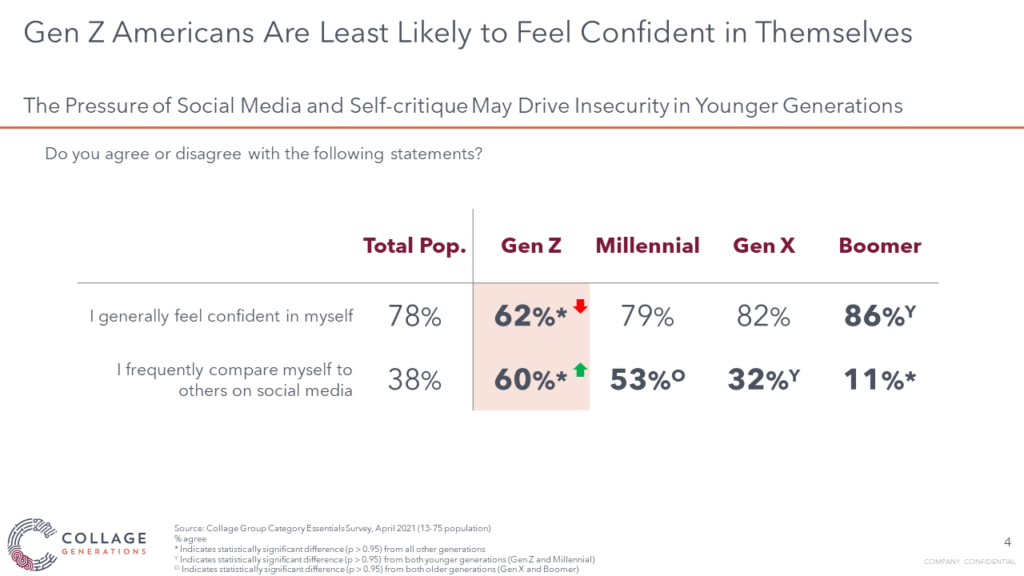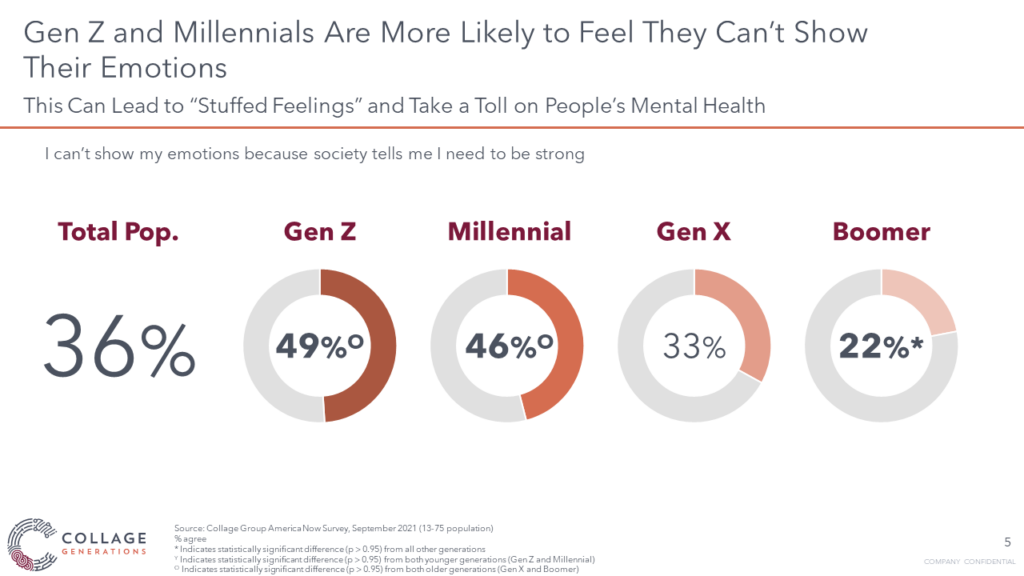America Now: Mental Health

Mental health is an important issue for Americans – now more than ever. Our 2021 Roundtable Presentation, America Now, offers insights that help explain how Americans are feeling about mental health and what brands can do to support them. Read on to learn more.
Mental health issues such as anxiety and depression are at an all-time high in the United States. Increased political polarization, heightened racial tension, and the ongoing pandemic are just some of the reasons that contribute to a lower overall sense of well-being for Americans. In a recent survey we conducted, we found that Gen Z Americans are the least likely to be satisfied with their physical and non-physical well-being, including their mental and emotional health.

In addition to the factors affecting all Americans, social media likely has an outsized impact on Gen Z’s mental health. Our survey data reveals that Gen Z is the least likely to feel confident in themselves, while also being the most likely to compare themselves to others on social media. And then there’s recent research, including Instagram’s internal research, that highlights the potentially negative impact of social media on younger people(1).

Something else that likely adds to young Americans’ struggles with mental health is the belief that they can’t show their emotions. In fact, almost 50% of Gen Z Americans agreed with the statement: “I can’t show my emotions because society tells me I need to be strong”, compared to only 22% of Boomers.

But here’s the good news—despite their struggles, Gen Z’ers want to improve their mental health. When asked where they are most focused with respect to their health and wellness, over 40% of the segment chose improving their mood/mental health. This suggests improving mental health is a top priority for Gen Z, even higher than improving their diet and increasing physical activity.
Now you may be thinking, how can my brand help improve people’s mental health? It turns out there are several ways you can play a positive role and connect with consumers in the process.
- Support and amplify influencers sharing openly about their mental health struggles. Many young Americans (~80%, in fact!) think it’s admirable when a public figure shares about their mental health struggles. Brands that show support for these individuals and amplify their voices will likely capture consumer attention and create affinity. Consider Cartoon Network’s shout out to Naomi Osaka and Simone Biles, and ESPN highlighting the many athletes that have spoken up about their mental health struggles including Michael Phelps and Demar Derozan.
- Provide supportive resources. Many brands are creating resources that consumers can use to improve their mental health. For example:– Athleta, Simone Biles’ sponsor, launched a new platform dedicated to women’s wellness called AthletaWell just days after Biles withdrew from the 2021 Olympic team finals for mental health reasons.– Maybelline New York launched the “Brave Together” program, an online platform to open the conversation around anxiety and depression.– JanSport has developed a fully integrated brand effort called #Lightentheload to connect Generation Z with resources to tackle the mental health challenges they face.
- Donate to causes. There are important causes that aim to improve the mental health of young Americans. Stella and Bow donates proceeds of their Rainbow Connection necklace to a charity focused on helping people with depression and addiction. And Philosophy has donated over five million dollars to mental health initiatives via their hope & grace initiative. Consider donating to one or more mental health causes and then use social media and other marketing efforts to let your market know they too can have a positive impact by donating.
Contact us to learn how you can gain access to these diverse consumer insights and much more in our Cultural Intelligence Engine.
Sources:
(1) NPR, “Instagram Worsens Body Image Issues And Erodes Mental Health”, https://www.npr.org/2021/09/26/1040756541/instagram-worsens-body-image-issues-and-erodes-mental-health